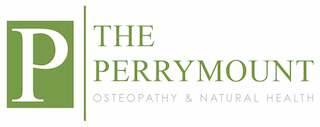Lindfield Life Articles
Here you can read the short articles written by Christian Bates for the Lindfield Life magazine
Colic Help
In this first article I would like to offer some advice to those new parents who are trying to get to grips with their newborn's feeding difficulties whether its name be colic, wind or gripe. I base my advice on both research and clinical experience.
During my consultation, after I have found out what is wrong with the baby the main three areas I want to understand are:
1) what the birth was like for the newborn, was it long, quick, was forceps or venteuse used?
2) If the mother is breast feeding what is she eating?
3) has the mother or baby had antibiotics?
There are in fact many, many more. You can find them all in my infographic here.
If the birth was quite traumatic for the child then the gentle and very effective cranial osteopathy is the treatment of choice. You will recognise the need for this treatment if the baby’s head is misshaped (classically a “cone-head”), bruised or if the baby doesn’t like laying down, wants to be held constantly, can’t settle by themselves, wakes easily with a jump or pulls at their hair or ears to name a few common symptoms.
If the mother or baby has had antibiotics then it is well documented that a particular probiotic, when taken by the breast feeding mother has significant benefits to the baby, including the easing of colic type symptoms and decreasing atopic allergies later in life such as eczema and asthma.
Lastly, research shows that the following foods have been found to irritate colic in the baby when the mother eats them; dairy products, wheat, chocolate, spicy foods and some fruits. I have found that the mother needs to look at the foods and drinks that she is eating excessively, perhaps they are her “weakness”, and the best way to truly track down the culprit is to make note in a diet diary that records all things eaten and the severity of the baby’s colic.
Help for the elderly
Do you suffer aches and pains, particularly of the low back, hips and knees? Have you ever been told this, "It's just because of your age"? Or even when someone has asked you about your aches you have said to them "Well its my age, its to be expected". These are common phrases I hear in my osteopathic clinic yet the people saying this are continuously getting pain relief from osteopathic treatment and are so grateful for it. Unfortunately we have been programmed to expect the pains from problems such as arthritis and "wear and tear" and to some degree this is true but I really don't think they should be accepted in full. Osteopathy has much to offer arthritis sufferers, after all the musculo-skeletal system is the domain we are most familiar and successful with. Let's take a knee arthritis for example. It is true that if there is wear and tear to the internal joint surfaces then repair of these is probably not possible but there are so many structures related to the knee that can be helped. For instance all the outer ligaments that get inflamed can easily be reach and improved, all the tight associated muscles can be relaxed, including those of the low back. The joint can also be gently mobilised to increase its range of movement and improve the blood supply. All these treatments can give great pain relief and I often have patients who are then better able to move around the house, walk to the shops regularly or perhaps enjoy gardening and golf again. So I would thoroughly recommend that you at least give osteopathic treatment a chance to prove wrong that annoying phrase "It's just your age"!
What diet is best?
Many people struggle with their food choices and it's no wonder with the amounts of foods available from around the world, the enticing "junk" food available and the shear number of different diets that are constantly advertised in books, magazines and by celebrities. I have three thoughts about food plans (not diets!). Firstly, everyone is different, we have different genetic make-ups, we exercise and rest different amounts and we all cope with stress in different ways. This means to me that everyone is suited to different foods and ratios of those foods, so we cannot fit the population to one diet. The ideal way to reveal this is through a metabolic typing questionnaire that I use with my patients. Secondly, the diets we eat today are generally so modern and refined that our bodies aren't genetically developed to eat them at all. Take for instance grains, such as wheat, which have only been available to eat since the agricultural revolution about 10,000 years ago. This period of time is a drop in the ocean compared to the 2.5 million years we have evolved prior to that. This is one of the reasons many people have a problem with grains, especially if your distant ancestors were from a climate where protein and fat was predominately eaten, rather than carbohydrates. The basics to draw from this knowledge is to eat what is known as a Paleolithic diet which means eat only foods that would have been around over 10,000 years ago. Lastly, the practical side. Keep a record of the foods you eat and monitor how you feel on them. You should be satisfied for around four hours after a meal without cravings in between. The foods should make you feel better and more energised both physically and mentally. They should not cause bloating or dyscomfort, make you feel fatigued or tired, nor should it make you feel fuzzy or muggy headed. So keep a diet diary and try to establish what foods and in what quantity you feel most healthy on.
For more information on these concepts contact Christian on christian@theperrymount.com.
To detox or not?
January is the month for weight loss, joining the gym and detoxing. As a naturopath I cover weight loss approaches and detoxification. In fact detoxification through fasting was THE method employed the naturopaths of old, and it was extremely effective in curing all manner of diseases in those times. However, times have changed and detoxification, and calorie restriction weight loss plans, now come with complications. This is down to the fact that we have a lot more to detoxify. The foods we eat, the air we breath, the products we put on and in ourselves all contain man-made chemicals that our bodies have not really evolved to recognise, it is actually amazing that we do have some sort of mechanism in place that can cope with them at all. So detoxification (and it also occurs in rapid weight loss too) is the release of all these toxic chemicals that are stored in the body, usually somewhere the body has wisely decided will keep them out of trouble. When detoxification occurs successfully the toxins come out from hiding and are correctly processed by the organs of detoxification (liver, bowel, kidneys, skin) and excreted to the outside. However, what can happen if there are too many toxins, or some of the organs are below par, is that a healing crisis occurs; basically you re-intoxicate yourself. This can be a good sign if it is controlled and you feel great after, but if it is too strong and you feel really quite unwell you may have to cut your detox short and then you find all the toxins are floating around again! Strong detox's would include fasting or juice type cleanses so go careful with these after Christmas. It is much better to support yourself initially with good healthy nutritious food before you try something stronger, and even better to seek some naturopathic guidance to target specific areas of weakness you may have. This way when it comes around to doing a gentle detox you can achieve it with the minimum of side effects.
Look after your digestion
There is a phrase "you are what you eat", this is true to a degree, but more accurately it should be "you are what you eat, digest and absorb". These last two points are all about looking after your intestines. More specifically, digestion occurs in the stomach and the absorption is done in the small bowels. So how can it go wrong? If you don't digest your food then you cannot liberate from it the nutrients it can provide you. This opens the doors to all sorts of health issues as without amino acids, fats, carbs, vitamins and minerals your body will be starved of the building blocks it uses to grow and repair itself with. Problems with digestion usually manifest as bloating, burping / wind, acid reflux and indigestion. Naturopaths use supplements and remedies that you take with meals to improve digestion, not suppress it. The small intestines are responsible for filtering this nicely digested food, allowing the nutrients into our blood and keeping the "bad stuff" out to be excreted. The baddies include parasites, fungus / candida, viruses, bacteria etc.. Again, a plethora of health issues occur if the mucous lining of the small intestine is damaged as it will allow these bugs to either get into the blood stream or to grow out of control in the intestines. Common symptoms that would be experienced now might be constipation, diarrhoea, food sensitivities or intolerances. Also common, but less known for stemming from bowel issue are things like joint aches and pains and immune system problems as the undigested food particles and the other "baddies" mentioned get into the blood stream and our body naturally launches an immune system attack on them. The early naturopathic texts all mention that the bowel and digestion should be addressed first in any health problems. I have seen this to be true in more cases than not.
Self help for back pain
If you are one of the millions that suffer low back pain then there are a few basic ways in which you can help yourself, but my first piece of advice has to be to get professional osteopathic help, in my experience the sooner you have treatment after an injury the better, it makes a vast difference to how quickly the recovery is. On the other hand if you have long term, chronic back pain then try getting help for that too, don't just accept you have to live with it, take pain killers forever or that it is just your age. Osteopathic treatment can help a wide array of different back problems no matter how long you have had them. But apart from treatment I want to cover a few of the most common bits of advice I give my patients during and after treatment.
Firstly, posture is always involved, if gravity is there, then you will have some sort of strain as you sit or stand. So my biggest tip is to improve your posture, most patients tend to be round shouldered and this puts strain on the neck and shoulders and increases muscle tension in the chest which further pulls the neck forward. Most patients know this, but what is less known is that rounded shoulders flatten the curve in the LOW back and this predisposes to disc and sciatica type injuries. So you must observe the posture of your whole spine, not just the parts that hurt.
Next, movement is vital, I always recommend gentle exercise classes like Tai Chi, yoga and Pilates to maintain flexibility and improve abdominal wall function. These classes should also be used if you do "harder" exercise like sports or weights at the gym, they will provide a balance between strength and flexibility. They are also invaluable if you have a sedentary job, like sitting at at PC all day.
Drinking water also helps the spine. Our spinal discs that provide a spring between our vertebrae take water in over night whilst we sleep. If water is not available then they in effect dry out and don't provide the spring and protection we need causing the joints to get closer together which can lead to wear and tear.
The foods you eat will also play a significant role in the health of your back. Most patients find this aspect one they have not paid much attention to. Firstly, food gives your body the building blocks with which it will repair itself, amino acids, vitamins and minerals. Secondly, certain foods maybe aggravating your back pain as they are known to increase inflammation, refined sugar being a big culprit. It is also worth trying to reduce the nightshade family of foods just in case they are a problem, in particular tomatoes.
For a holistic, self-help approach to a healthy spine you need to observe your posture, both standing and seated, your movement / exercise patterns, and what you eat and drink.
Can’t shift your extra weight?
Have you ever tried a weight loss program that worked for a friend but not for you? Or are you eating really well and exercising and the weight is still not shifting? In cases like these it probably means that the weight loss diet you are using isn't right for your metabolism but does suit you friend, or may the exercise program you are using is not at the correct intensity for you. Let's look at two simple examples, perhaps you are on a low fat diet, and it isn't working, this would indicate to me that potentially you would function better on a diet that is higher in protein and fats than carbohydrate. Or it might be the other way around for you and you might lose weight on a more vegetarian / carbohydrate diet. What about exercise? If you are working really intensely, but at the same time you have a lot of stress in your life your body may take the intense exercise as more stress and actually hold on to the weight in a protective manner, for future fuel! For individualised diets I use Body Biotyping and Metabolic Typing as a way of indicating what food plans will be best suited to each patient.
Other underlying problems of weight gain include hormone imbalances. Women tend to suffer more with these, and problems in their monthly cycle can give clues here. The weight gain when the female hormones are out of balances tends to be all over but especially on the buttocks and breasts. However, the adrenal gland hormones, cortisol and adrenaline, can have a major effect on men and women and usually the weight gain area that indicates this is around the tummy. The thyroid is another hormone producing gland that weight gain can be blamed on. Symptoms related to a sluggish thyroid include constipation, cold hands and feet, tiredness, lack of energy, thinning hair and weight gain on the thighs to name a few. A simple test to check your thyroid is to take your temperature first thing in the morning, before you have even got out of bed for a 5 consecutive days. If your temperature is consistently under 36.6 OC then you may be low thyroid and this might be playing a part in your weight gain, for further investigation you would have to consult your GP for a blood or saliva test.
Food allergies and digestive issues can also make the pounds go on. Many patients comment that after removing wheat from their diet they lose a lot of "water retention", and very rapidly, I would say this is more down to an intolerance to the wheat rather than truly losing fat cells. Food allergies go hand in hand with digestion problems, like heart burn, irritable bowel or constipation etc which can play a role in the cause of the intolerance.
So for a complete approach to weight loss, don't just look at the latest diet the celebrities are using, have a look at your whole health and lifestyle, do you have digestive problems, food intolerances, stress or emotional issues or hormone imbalances that you know of and try tackling each of these in addition to improving your diet.
Eczema and “The Law of Cure”
As a naturopathy I often refer to the "Laws of Cure" when I m explaining to patients the path they may take to regaining health. These are laws that have been observed by eminent natural physicians over hundreds of years and I see them as ringing true even in our modern times. I would like to explain in this months column "Herrings Law of Cure". Herring was a medical doctor in the 1800's and his observations led him to conclude four principles on how a person will heal themselves. 1) from the inside out 2) from above to below 3) from the most important organ to the least important 4) in the reverse chronological order of appearance of symptoms.
Skin conditions, like eczema and psoriasis, are good examples of these laws. Naturopaths view the skin as a detoxification organs, ie toxins will be eliminated through the skin, so from the inside out. But this really only occurs when the internal detoxification organs like the liver, bowel and kidneys are are overworked and they then recruit the skin for help, resulting in acne, eczema, psoriasis, boils etc. So the answer here is to cleanse the inside to relieve the outside. Now let's look at law 3, which also works well with skin conditions. The body would rate the skin as one of the least important organs, and I realise that by saying this anyone with debilitating eczema will be disagreeing! But, if an internal organ is too toxic , like the liver or kidney, and the body is trying to protect it then what would you prefer to take the brunt of the toxins, your skin or liver? I think these two observations of healing are common sense, and our bodies are a lot more clever than just "common sense". Psoriasis, illustrates Law 4 nicely as it can progress into psoriatic arthritis, which is basically a disease where a person has both psoriasis and arthritis. The old naturopaths would observe that when arthritic complaints where helped, usually by fasting in those times, there would be a beneficial flare up of the psoriasis. So the psoriasis that the patient initially had when they were younger, but has cleared as the arthritis occurred, would be returned to. So here we have a disease healing in reverse chronological order, from the inside out and from a more important organ to a less important one.
I have briefly explained these to you so you can have a basic grasp of how your body functions naturally to get well and you might be able to observe these laws in yourself if you have put in place a new healthy lifestyle of eating and exercise. Remember if they are going the opposite way around it shows that your health is going in the wrong directions so you may want to start making beneficial changes sooner than later!
Insomnia and sleep problems
Not so long ago I was feeling very tired, a spate of our two year sleeping cross ways in bed being the problem! On one particular night I decided to have a very early night to catch up and went tombed before 9. I slept through and woke at 6 amazingly refreshed, wide awake and ready for the day. It was then that I realised how powerful and rejuvenating sleep would be to my patients who's health is under par. Imagine having a week of going to bed at 9pm, and implementing all the other advice too, the improvements would be fantastic.
If you are a regular reader of this column you will know that I always look at each patient as an individual and again insomnia is no different. What works for one may not work for another and may even make them worse. In particular, when individualising a treatment plan it is foods and vitamins and minerals that differ in how they help. For example, some people may be aided by carbohydrates before bed, others protein. On the minerals side calcium, magnesium or potassium can help, but it will also vary person to person. To find out your individual requirements of foods and supplements take the Metabolic Typing questionnaire, click here.
However, there are enough basic tips that everyone try that can achieve good results. Firstly avoid all caffeine products, the main culprits being coffee, tea, colas and chocolate. Also tobacco, alcohol and sugar can be nervous system stimulants so avoid these too close to bed time. Reserve the bedroom primarily for sleep, so no watching tv, playing video games, working on a laptop, doing paperwork or even exercising which will be priming the mind for activity not rest.
Regular exercise during the day however has been researched to improve sleep patterns. It has to be regular though, not the occasional piece here and there. Another useful tip is to not spend too long trying to get to sleep. Spend no longer than 30 minutes trying and then get up and leave the bedroom if you haven't successfully fallen asleep. Do something productive for a while and then return to bed to try and sleep again. This helps habituated the mind to sleeping in the bedroom only. Sleep tight.



